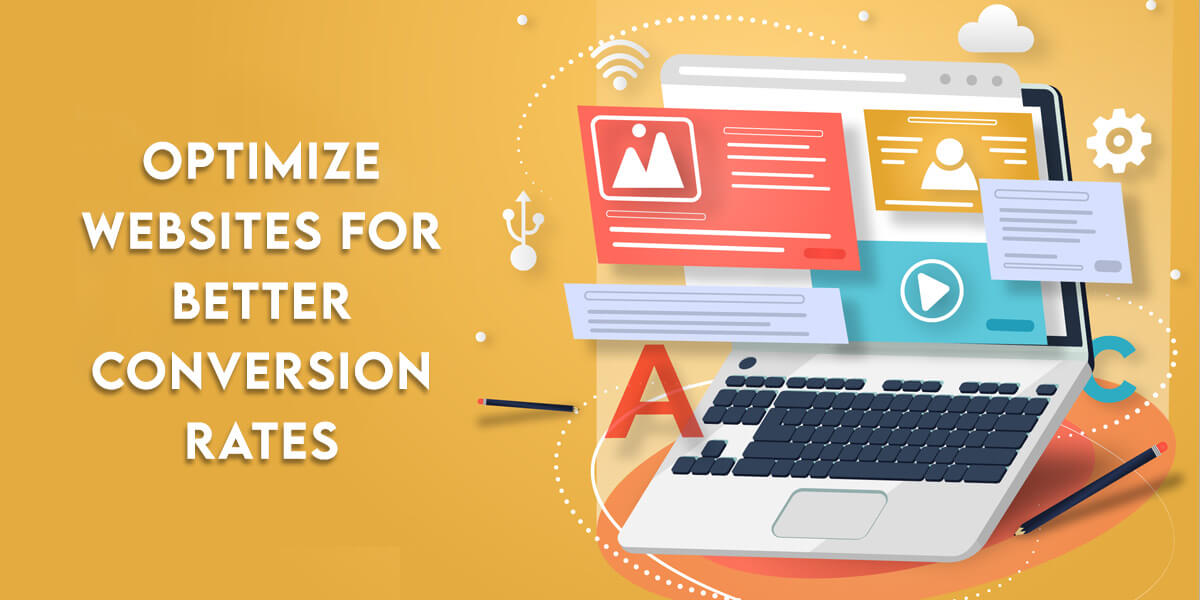
Website optimization is the process of improving various factors in a website to make it user-friendly and appealing. It involves the design, code, and content improvements. A better-optimized website will help in generating more conversions. This also helps in improvements in SEO factors.
How to optimize the website?
Make a Audit.
To identify the necessary changes, analyze your website. An audit report will disclose the area of improvement of the website. Also, please look at your competitors’ sites to see what features and methods they have used, such as site structure and keywords. The strategies of your competitors will influence your optimization strategy.
Increase your page speed and improve the user interface
Even a one-second delay in page loading can affect your conversion rate. It cannot engage its users in slow motion. It will be an affair for website optimization. Increase your page speed by improving server response, optimizing images, and reducing redirection.
The user interface also plays a vital role in personalization. If the interface of your website is easy to use, it will attract more people. Content should be readable, and navigation should be simple. Easy-to-use navigation can increase conversion rates by up to 7%. Therefore, while optimizing your site, pay attention to these two factors.
Make your Website Mobile Friendly
Optimize your site for mobile devices to increase conversion rates and generate more traffic. Today most people use mobile devices to navigate, so having a website is also good for your business. Look for signs of poor quality web hosting and switch to a reliable web server, redesign your site for mobile optimization, and enable instant mobile pages.
Avoid multiple share buttons on social networks and captcha
Today there are many platforms for social media. But having all the social media buttons on your website can cause some problems. If you have a lot of buttons to share, you can reduce the website’s click rate. Therefore, stick with the leading social media options for your product pages.
A business website usually uses the captcha option for visitors; It can also affect your customization to some extent. Disable the captcha option when it is not necessary as it will help easy browsing of your website.
Pay Attention to site content
Nothing works without good content. Content optimization is essential for website optimization. Excellent content with specific keywords helps increase traffic and improve website conversion rates.
Even search engines prefer websites with original content. It would help if you focused on providing valuable information to your users so that it also helps in user participation. Avoid irrelevant and redundant content on the site. For a commercial website, the focus should be on specific content.
Add Video to Homepage and Testimonial
Today people prefer to watch a video rather than read it, which is why explanatory videos have become so popular. Video optimization is a trend that is effective for SEO. It is a good idea to add a video to your homepage or business website.
This can help increase the conversion rate to 50%. A video on your homepage will give you more traffic and improve user participation on your site. Besides, add video testimonials as customer comments. Video optimization is much better than any other tool, as it helps to give your website excellent performance.
Link Building
For a long time, links have been one of the most important ranking factors. Google is now more skilled at devaluing spammy hyperlinks. This being said, quality will always be more important than quantity.
Focus on SEO
SEO refers to an on-page strategy that uses the HTML source code for your website pages. SEO involves incorporating metadata, headers, descriptions, and URL structure. This will help search engines quickly determine the content on each page.
Off-page optimization is a technique for optimizing your website externally. Maximize your social media presence, get featured on trusted sites as a guest blogger, partner with relevant influencers, and build links.
Use website caching
Servers may take longer to deliver the page to users if many people access it at once. Caching refers to the storage of the current version of your website and the presentation of this version until the website is updated. Caching means that the web pages don’t have to be reloaded for every user.
Reduce redirects
Website redirects can lead to additional HTTP requests that negatively impact performance. We recommend reducing or eliminating them. You should first identify any redirects on your page by running a site scanner. To quickly find redirects, you can use Screaming Frog. It would help to verify that they are necessary and remove those you don’t need.
Best Website Optimization Tools
- PageSpeed Insights: PageSpeed Insights reports on page performance on desktop and mobile devices and offers suggestions for improving it.
- Google Search Console: Google Search Console provides tools and reports to assist with the following actions:
Confirm that Google can crawl and find your website.
Resolve indexing issues and ask for re-indexing.
Google Search traffic data:- See how often your website appears in Google Search.
- See which search queries show your site.
- Find out how many searchers click through to your site for these queries.
Get alerts from Google when your site is subject to spam or indexing issues.
Show us which websites link to your site.
Troubleshoot issues with AMP, mobile useability and other Search features.
- Ahrefs: Ahrefs is an SEO software suite. It includes tools for keyword research, link building, competitor analysis and rank tracking. It’s the ultimate tool for learning from the best websites, getting ideas, and implementing those lessons on your website.
- Yoast SEO: Yoast SEO plugin is a WordPress plugin that helps you optimize your site’s content, keywords and rankings in search engines.
Yoast SEO has tons of features and tools to improve your SEO. These features can impact the SEO of your entire website, while other features of Yoast SEO allow you to optimize specific pages and posts for search engines.
- Screaming Frog: The Screaming Frog desktop application can be installed locally on your computer, Mac, or Linux. It scans websites for links, images and CSS from an SEO perspective. It shows you what a search engine spider would see while crawling a website. It contains key information that will help SEOs make well-informed choices.
- Semrush: SEMrush software is designed to help companies manage digital marketing strategies, such as SEO campaigns. This digital marketing software is all-in-one and can help you manage SEO, PPC, Social Media, Content Marketing campaigns.
Conclusion
Website optimization is a continuous process that aims to make your website as useful and user-friendly as possible. This comprehensive guide will help you get started on optimization and create your strategic plans. Website optimization can only be done effectively if you have a tool to track all moving parts of the website.



